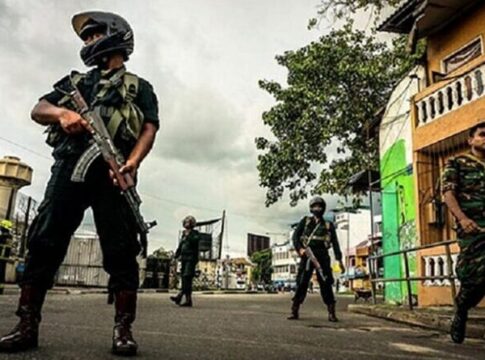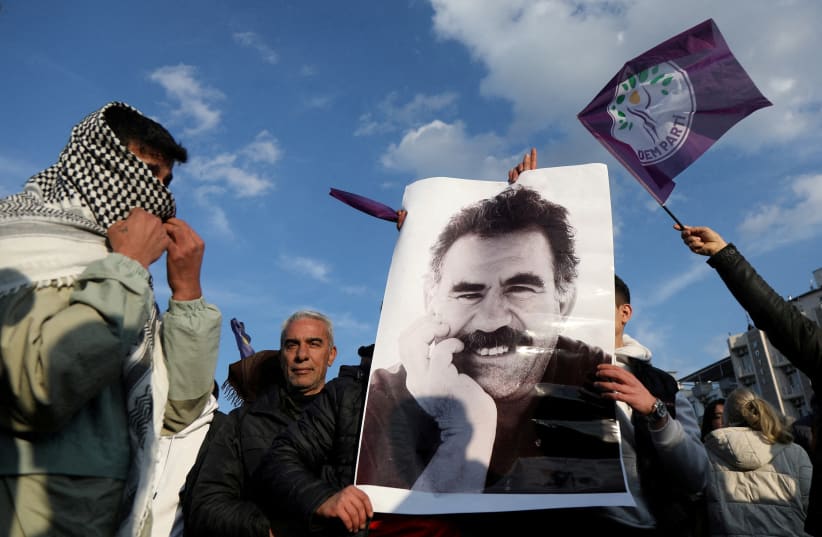Sri Lanka Faces New Threats Amid Global Conflict
In the wake of Israel’s ongoing conflict with Hamas, Sri Lanka has become a focal point for security concerns. The first reported instance of Israeli tourists facing terrorism threats overseas since the war began occurred in the island nation. The conflict, which erupted on October 7 following a Hamas-led attack on Israel, has intensified security fears worldwide. Shortly after, Israel’s National Security Council issued a warning urging Israeli citizens to vacate popular tourist hubs in Sri Lanka, particularly Arugam Bay and other coastal destinations. The warning cited credible intelligence of potential terrorist threats in the eastern region of the country. This alert was reinforced by the U.S. embassy in Colombo, which also warned of potential attacks targeting foreign tourists in the area.
Arugam Bay, a renowned surfing destination situated roughly 400 kilometers east of Colombo, is a favorite among international visitors, including Israelis. Reports from Sri Lankan media, citing the Acting Inspector General of Police, indicated that Indian intelligence had tipped off authorities about possible attacks on foreigners as early as October 7.
Sri Lanka’s Eastern Province: A Breeding Ground for Extremism?
Sri Lankan intelligence agencies have raised concerns over the growing spread of extremist ideologies among the Muslim community in the Eastern Province, particularly in Kalmunai. In response, security agencies, including the State Intelligence Service (SIS) and military intelligence, have increased surveillance efforts. Public Security Minister Ananda Wijepala has confirmed the presence of extremist activity in the province, warning of its implications for national security. President Anura Kumara Dissanayake also addressed Parliament, revealing that six individuals were recently arrested based on intelligence reports regarding potential attacks on foreign tourists in Arugam Bay.
READ MORE: Muslim Nations Rally Behind Arab Proposal Against Trump’s Gaza Plan
Sri Lanka’s vulnerability to transnational jihadist networks became apparent during the 2019 Easter Sunday bombings. The attacks, orchestrated by ISIS-linked militants, resulted in the deaths of approximately 280 people, including numerous foreign nationals. One of the targeted sites, Zion Church in Batticaloa, was reportedly chosen due to its symbolic association with Israel.
The Eastern Province, home to a significant Muslim population, has seen demographic shifts due to natural growth and migration patterns. Hindu Tamils, once the dominant community, have been gradually outnumbered in some areas. In Trincomalee, a strategically vital region, Muslims have become the majority group. Some analysts suggest that a growing perception of the Eastern Province as a predominantly Muslim region has contributed to rising tensions and extremist influence.
Geopolitical Implications and Regional Security Risks
The penetration of radical ideologies in the Eastern Province has coincided with strong pro-Palestinian sentiments among some local communities. This has, at times, translated into opposition to foreign investment projects, particularly those involving Israel. For instance, when reports emerged in 2022 about a proposed joint Indian-Israeli agricultural investment in the region, local Muslim groups strongly objected, fearing increased Israeli influence in what they perceive as a Muslim-majority area.
The ease of communication with religious organizations across the Islamic world has further facilitated the spread of extremist ideologies. Whenever major jihadist movements gain traction globally, there have been reports of celebratory reactions among certain groups in Sri Lanka. During al-Qaeda’s peak, for example, translated speeches of Osama bin Laden were reportedly circulated in some local mosques. Many South Asian jihadist groups, including those based in Sri Lanka, have historically expressed ideological support for al-Qaeda and its global jihad narrative.
The Rise of ISIS Influence in Sri Lanka
The spread of ISIS’s ideology in Sri Lanka has been particularly pronounced in Kattankudy, a town in the Eastern Province. Moulavi M.C. Zahran, the mastermind behind the 2019 Easter bombings, played a significant role in propagating jihadist teachings in the country. Reports indicate that as early as 2009, he was active in extremist circles as the propaganda secretary of the local Thawheed group, which adheres to the Wahhabi school of Islamic thought.
READ MORE: Indonesian Shariah Court Sentences Two Men to Caning for Same-Sex Relations
Kattankudy has since become a hotspot for sectarian tensions, particularly between Wahhabi-influenced groups and Sufi practitioners, who follow a more mystical interpretation of Islam. The ideological conflict has escalated into violence, with incidents of grenade attacks and forced displacements of Sufi followers. As early as 2007, analysts warned that hardline Islamist violence in Sri Lanka could eventually give rise to organized armed movements.
Some experts argue that the rise of extremism in Sri Lanka stems from long-standing grievances related to socio-economic and political marginalization. However, others contend that the radicalization process is more closely linked to transnational jihadist movements rather than local governance issues. Unlike other minority communities in Sri Lanka, Muslims have historically held significant political influence, with leaders occupying high-ranking ministerial positions in successive governments.
Security Challenges for Sri Lanka and South Asia
Sri Lanka’s failure to anticipate the rise of global jihadist networks has had lasting consequences. During the country’s civil war, the government authorized the formation of Muslim Home Guards as a countermeasure against Tamil separatist insurgents. However, this decision inadvertently created an environment in which radical Islamic groups could organize and expand their influence.
The growing presence of extremist elements in Sri Lanka’s Eastern Province has significant implications for regional security. India, which has strategic investments in the province—especially in Trincomalee—faces potential security risks if jihadist groups gain further traction. The broader South Asian region has already seen the emergence of new militant organizations, many of which align with al-Qaeda’s ideological framework, despite doctrinal differences.
Sri Lanka’s National Thowheeth Jama’ath (NTJ), founded by Zaharan, has maintained close ties with extremist groups in southern India, including the Tamil Nadu Thowheed Jamath. These connections highlight the transnational nature of jihadist networks in the region. As South Asia grapples with rising extremism, Sri Lanka’s growing Islamic radicalization represents a critical security challenge that demands urgent attention from regional and global stakeholders.
- This article was published at The Centre for Strategic Studies — Trincomalee



